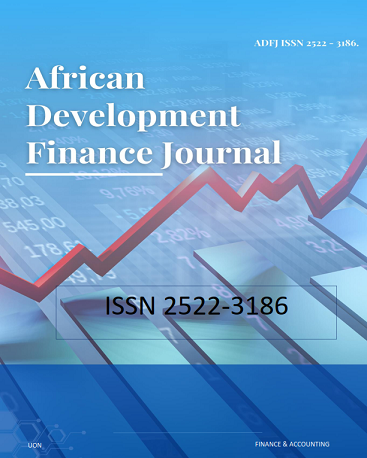The impact of Climate Change and Development Finance on Economic growth of Sub Saharan Africa Countries
Abstract
Sub-Saharan Africa's (SSA) economic growth has garnered global interest due to its growth potential, abundant resources, and youthful population. However, challenges like climate change and limited developmental finance hinder progress. The region is particularly vulnerable to climate change, as its economy heavily relies on rain-fed agriculture, making it susceptible to temperature shifts, changing precipitation patterns, and extreme weather events such as droughts and floods. The study employed the Generalized Method of Moments (GMM) to investigate the effects of developmental finance and climate change on economic growth. The analysis focused on ten African countries from 1999 to 2022. Developmental finance was evaluated through foreign direct investment (FDI) and net official development assistance (ODA), while climate change was represented by mean annual temperature and rainfall. Economic growth was measured using the annual gross domestic product (GDP) growth rate. The findings revealed that foreign direct investment and mean annual rainfall significantly enhance economic growth. Conversely, net official development assistance and mean annual temperature negatively affected economic growth. The study recommends that political and economic stability are crucial for attracting FDI. Furthermore, it recommends implementing policies that promote transparency, reduce corruption, and safeguard investors' rights to increase FDI inflows. Considering rainfall as a vital resource, investments in water conservation, rainwater harvesting, and watershed management are essential to mitigate the impacts of low rainfall and flooding.
Keywords: climate change, developmental finance, FDI, ODA, Sub-Saharan Africa's

